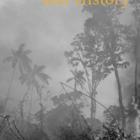Moon, Suzanne. “Empirical Knowledge, Scientific Authority, and Native Development: The Controversy over Sugar/Rice Ecology in the Netherlands East Indies, 1905–1914.” Environment and History 10, no. 1 (Feb., 2004): 59–81. doi:10.3197/096734004772444414. This essay explores the political value of empirical, scientific knowledge of place in the Netherlands East Indies. Critics of the European sugar industry claimed that sugar depleted the soil and stunted subsequent rice crops. The ensuing controversy reached a stalemate when both sugar scientists and their critics were accused of selectively choosing evidence according to political bias. Scientists in the Department of Agriculture resolved the dispute and fought accusations of bias by drawing on their empirical knowledge of agricultural conditions across Java, using place-based knowledge to construct their credibility and exclusive authority to speak for agricultural matters in the colony. All rights reserved. © 2004 The White Horse Press
"Empirical Knowledge, Scientific Authority, and Native Development: The Controversy over Sugar/Rice Ecology in the Netherlands East Indies, 1905–1914"
Moon, Suzanne | from Multimedia Library Collection:
Environment and History (journal)


